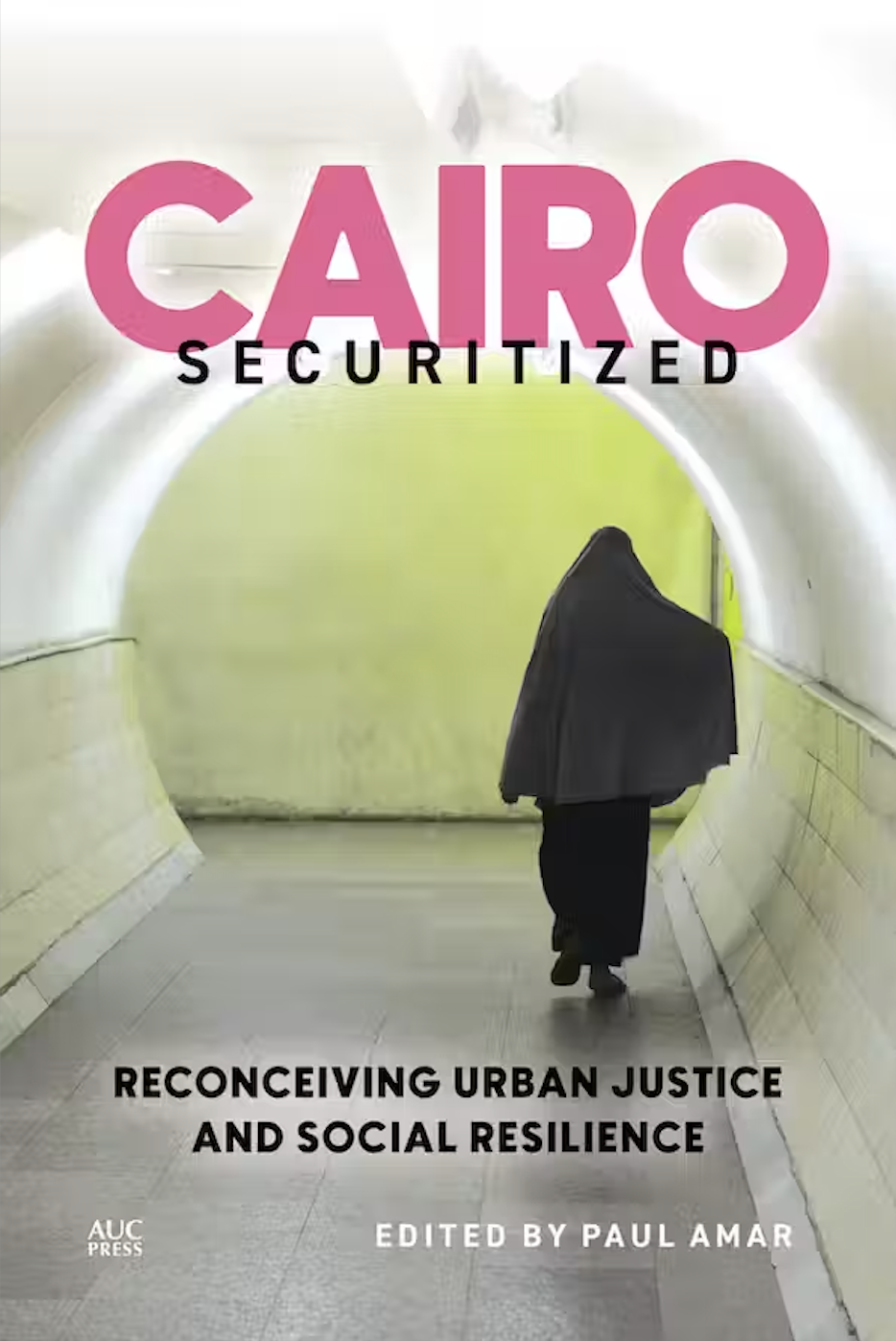Cairo Securitized, edited by Paul Amar (Orfalea Center & CMES)

A rich examination of the securitization of the everyday lives of the citizens of Cairo and how to build a more equitable urban order
Until the year 2000, Cairo had been a model megacity, relatively crime free, safe, and public facing. It featured a thriving public culture and vibrant street life. In recent decades, however, the Egyptian state has accelerated a wholesale dismantlement of public education and public sector jobs and reversed the modest land reforms of the Nasser era. As a result, the vast majority of Cairo’s people have been forcibly deprived of their social rights, social goods, and educational capital.
Eschewing the traditional focus on top-down regime and state security, the contributors to this volume, who represent a wide array of academics, activists, artists, and journalists, explore how repressive policies affect the everyday lives of citizens. They show the ways in which urban security crises are politically fashioned and do not emanate from the urban social fabric on their own: city crime, violence, and fear are created by specific means of extraction, production, and control.
Another kind of city can live again. But how? By tackling a range of issues, including public health, transportation, labor safety, and housing and property distribution, Cairo Securitized unsettles simplistic binaries of thug and police, public versus private, and slum versus enclave, and proposes compelling new ways in which securitizing processes can be reversed, reengineered, and replaced with a participatory and equitable urban order.